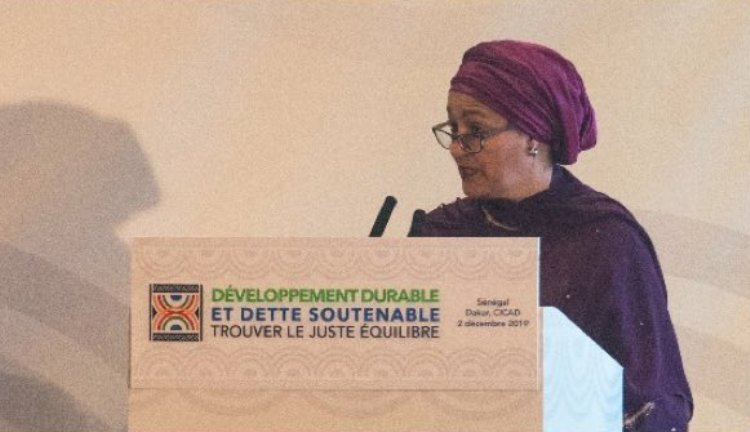High debt, debt distress can undermine development progress: UN deputy chief
“High debt creates uncertainty, deterring investment and innovation, and stalling economic growth and development”, the deputy UN chief said at the inaugural session of the discussion, co-organized by the International Monetary Fund (IMF) and Senegalese Government.

- Country:
- Senegal
High debt and debt distress can “easily undermine” the development progress that the African countries have achieved, Deputy Secretary-General Amina Mohammed said on Monday at a conference on sustainability and debt in Dakar, Senegal.
“High debt creates uncertainty, deterring investment and innovation, and stalling economic growth and development”, the deputy UN chief said at the inaugural session of the discussion, co-organized by the International Monetary Fund (IMF) and Senegalese Government.
She outlined areas of importance, which included strengthening countries’ debt management capacity; combatting illicit financial flows; introducing innovative debt instruments and targeting debt relief.
“As the scale of the challenge is becoming clearer, the international community needs to step up”, she maintained.
Pointing to the 1990s debt crisis, she stressed the need “to ensure that history does not repeat itself”.
“We need strong political will from African countries and the commitment of international partners to address the structural issues that constrain sustainable development financing in Africa”, she spelled out.
“We are encouraging countries to adopt integrated national financing frameworks….[to] help align all financing policies and approaches – from tax to investment, aid, and debt – with national priorities”, concluded the deputy UN chief.
ALSO READ
Ben Dalton appointed new board Chair of Ngāpuhi Investment Fund
Mr. Kapil Bhatia felicitated with the prestigious Lifetime Achievement Award at the Hotel Investment Conference-South Asia (HICSA) 2024
British PM Rishi Sunak unveils GBP 35 million investment in grassroots cricket to widen participation in schools
Ireland's sovereign investment fund to divest from six Israeli firms
Commercial Bank International leads investment round in generative AI fintech










